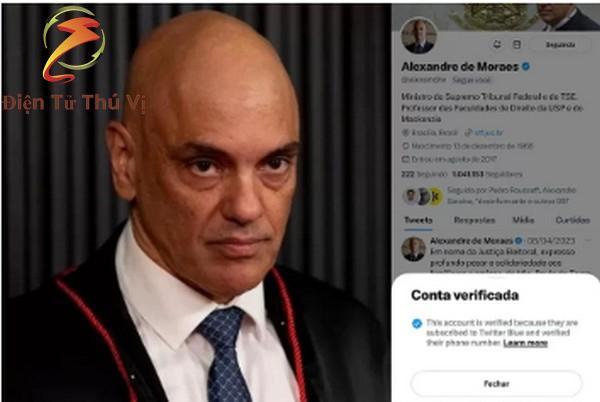Elon Musk Alexandre De Moraes Twitter

The tense confrontation between tech billionaire Elon Musk Alexandre De Moraes Twitter has caused shockwaves over the past few days. The conflict erupted after Musk declared he would “lift all restrictions” imposed by Brazilian courts on his X platform (formerly Twitter), threatening to shut down operations if forced to comply.
In a harsh response, Moraes ordered an investigation into Musk for obstruction of justice and criminal organization. The incident heightened tensions over issues of free speech, content moderation, and the influence of social media platforms on Brazil’s democracy.
Musk aligned himself with far-right voices claiming censorship of conservatives in Brazil. His defiance of court orders escalated the standoff with the country’s highest court over control of online speech.
Pro-Bolsonaro lawmakers rallied behind Musk, further polarizing the debate. Authorities warned of potential consequences like emboldening misinformation and anti-democratic narratives on the platform. Please follow the website dientuthuvi.com for more specific information!

Event that initiated the confrontation: publication of Michael Shellenberger’s email, reaction of Twitter (X) and Elon Musk
Origins of the Confrontation
The clash between Elon Musk and Brazilian judge Alexandre de Moraes started after journalist Michael Shellenberger released emails. On March 22, Shellenberger claimed the emails showed Brazilian authorities asking for user data from Twitter (now X).
X said they had to block some Brazilian accounts due to court orders from Moraes. They alleged Moraes disrespected internet laws and threatened employees with fines if they didn’t comply.
Musk shared Shellenberger’s posts. Without evidence, he accused Moraes of threatening to jail X employees and cut access in Brazil. Right-wing voices, endorsed by Musk, claimed conservatives faced oppression in Brazil.
Musk said Moraes demanded “too much censorship” and vowed to “lift all restrictions” from Brazil’s judiciary on X. The “free speech absolutist” implied he may shut down X’s Brazil operations if forced to follow court orders.

Details of escalating tensions Elon Musk Alexandre De Moraes Twitter
The tensions between Elon Musk and Judge Alexandre de Moraes quickly escalated after the initial allegations. On March 25th, Musk responded to an old tweet by Moraes congratulating a new minister.
Musk questioned “Why do you demand so much censorship in Brazil?” Pro-Bolsonaro lawmakers like Eduardo Bolsonaro cited examples like the denied release of former congressman Daniel Silveira.
The next day, Musk escalated further, tweeting at Moraes that he was “raising all restrictions” imposed by Brazil’s judiciary on X. The “free speech absolutist” implied he may shut down X in Brazil if forced to follow court orders.
Musk’s alignment with far-right free speech rhetoric raised concerns he could embolden misinformation, hate speech and anti-democratic narratives on the platform in Brazil. His defiance of judicial orders heightened the standoff with the country’s top court.
Pro-Bolsonaro voices, including the former president’s son, rallied behind Musk, seeing him as an ally against alleged censorship of conservatives in Brazil. This further polarized the debate over Musk’s potential impact on Brazil’s democratic institutions.

Legal remedies that Judge Moraes imposed on Musk and X
Brazil’s Response
In response to Musk’s defiance, Judge Alexandre de Moraes swiftly took legal action against the billionaire and X. On March 26th, Moraes ordered Musk included in an inquiry probing anti-democratic militias and their financing. He also opened an investigation into Musk for obstruction of justice and incitement to crime.
The decision imposed a daily R$100,000 (US$20,000) fine per profile if X disobeys court orders, including reactivating accounts suspended by the Supreme Court. Moraes stated it’s unacceptable for X to be unaware of “criminal instrumentalization” by “digital militias” spreading illegal content.
Supreme Court President Luís Roberto Barroso affirmed judicial decisions must be obeyed, stating “any company operating in Brazil is subject to the Constitution, laws and authorities.”
Senate President Rodrigo Pacheco declared it “inevitable” that the Chamber of Deputies would advance the “Social Media Bill” regulating platform operations, approved by the Senate in 2020.
The firm response from Brazil’s highest judicial and legislative authorities underscored their determination to uphold rule of law and control over content dissemination by social media platforms in the country.